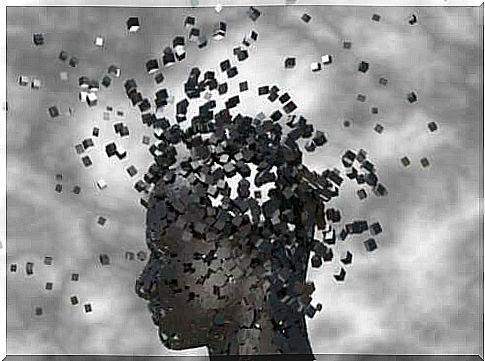Psychosomatic Illnesses: The Brain Can Make Us Sick

Dr Suzanne O’Sullivan is a famous neurologist, author of the book ‘ This is in your head ‘. In this work, she dives into the unknown world of psychosomatic illnesses.
Psychosomatic illnesses have been known for a long time, but in the 21st century, they continue to generate questions and arouse a lot of misunderstanding. Many think of them as if they were simulations. They are not aware that, as O’Sullivan says, “the brain can make us sick.”
Psychosomatic illnesses are not false illnesses. What happens is that your symptoms are triggered by mental reasons.
So a psychosomatic pain in the legs is totally real, what happens is that the problem is not in the legs. Anyone who suffers from this suffers as if there really was an external damage. What happens is that this type of illness does not obey a physical reason, but a psychic condition. That’s why we say that “the brain can make us sick”.

psychosomatic illnesses
O’Sullivan reminds us that all emotions generate physical changes. She uses as an example what we feel in the presence of the person we love: butterflies in the stomach. It is a physical sensation originated in feelings and emotions.
The same happens when, for example, we speak in public. The heart beats faster and the legs tremble.
In these examples, no one doubts the connection between emotions and physical manifestations. However, when we talk about psychosomatic illnesses, doubts arise.
Many people think that fear can indeed cause a tremor in the legs, but they refuse to recognize that this fear, in certain circumstances, can give rise to more serious symptoms.
It’s a contradiction many doctors also fall for. There is a strong tradition that leads us to separate the mind from the body and to consider the phenomena of the mind as “fictions”, and the physical phenomena as “real”.
If the two areas were separated, we would not feel “butterflies in the stomach”, nor chills when faced with situations with a high emotional charge.
“The brain can make us sick”
For Suzanne O’Sullivan herself, it was a great surprise to see that the brain can make us sick. Early in her medical practice as a neurologist, she saw patients with severe symptoms.
Many patients had epileptic seizures, for example. However, when researching, she found that there was no neurological pattern to explain them.
We often wondered if these patients were faking it. Over time, he discovered that he didn’t. These people suffered from seizures and epilepsy in the same way as those patients in whom a neurological cause could be identified.
That’s how she understood that sometimes the cause of a symptomatic condition originates in the mind rather than the body. The manifestations of the disease are basically the same, what varies is the origin and, therefore, the recommended intervention protocol.

a widespread problem
O’Sullivan says that many of his patients were disappointed, even irritated, when told that their problem was psychosomatic. They used to ask for the exams to be repeated or to seek second opinions.
Somehow this should have been good news for them, but it wasn’t. In many cases, people felt they were being considered “crazy”.
In this sense, it seems that we are much less adept at identifying emotional symptoms than we are at camouflaging them. Thus, this malaise often returns in the form of a physical symptom, which is usually psychosomatic in nature.
So, upon receiving the diagnosis, the person needs to recognize what they previously chose to ignore. And many are not prepared for this or do not believe in this relationship.
There is a study by the World Health Organization (WHO) according to which one in five people has at least six physical symptoms that cannot be explained for some organic reason. In other words, he has psychosomatic problems.
Another study highlights that, among patients who are hospitalized, at least 30% correspond to cases of psychosomatic illnesses.
In many cases, the problem remains the resistance of many patients to accept the diagnosis ; their fear that there is some organic cause that has not been noticed or the motivation to simplify the intervention, placing the responsibility on drugs or surgical interventions, are two of the main constructions of this resistance.
On the other hand, this is a problem, since an active collaboration of the patient is necessary to attack what is somatized and produces the symptomatology.
In any case, the suffering is real, and therefore our duty as a society is to keep investigating, while at the same time debunking many of the myths surrounding psychosomatic illnesses.









